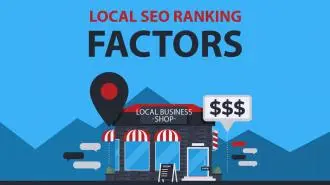SEO is crucial for businesses these days, offering options like local, national, and even international approaches.
So, which type of SEO do you use? Given that 46% of all Google searches seek local information, local SEO seems a good choice. But what if you’re a business with a presence nationwide and want to attract a larger audience?
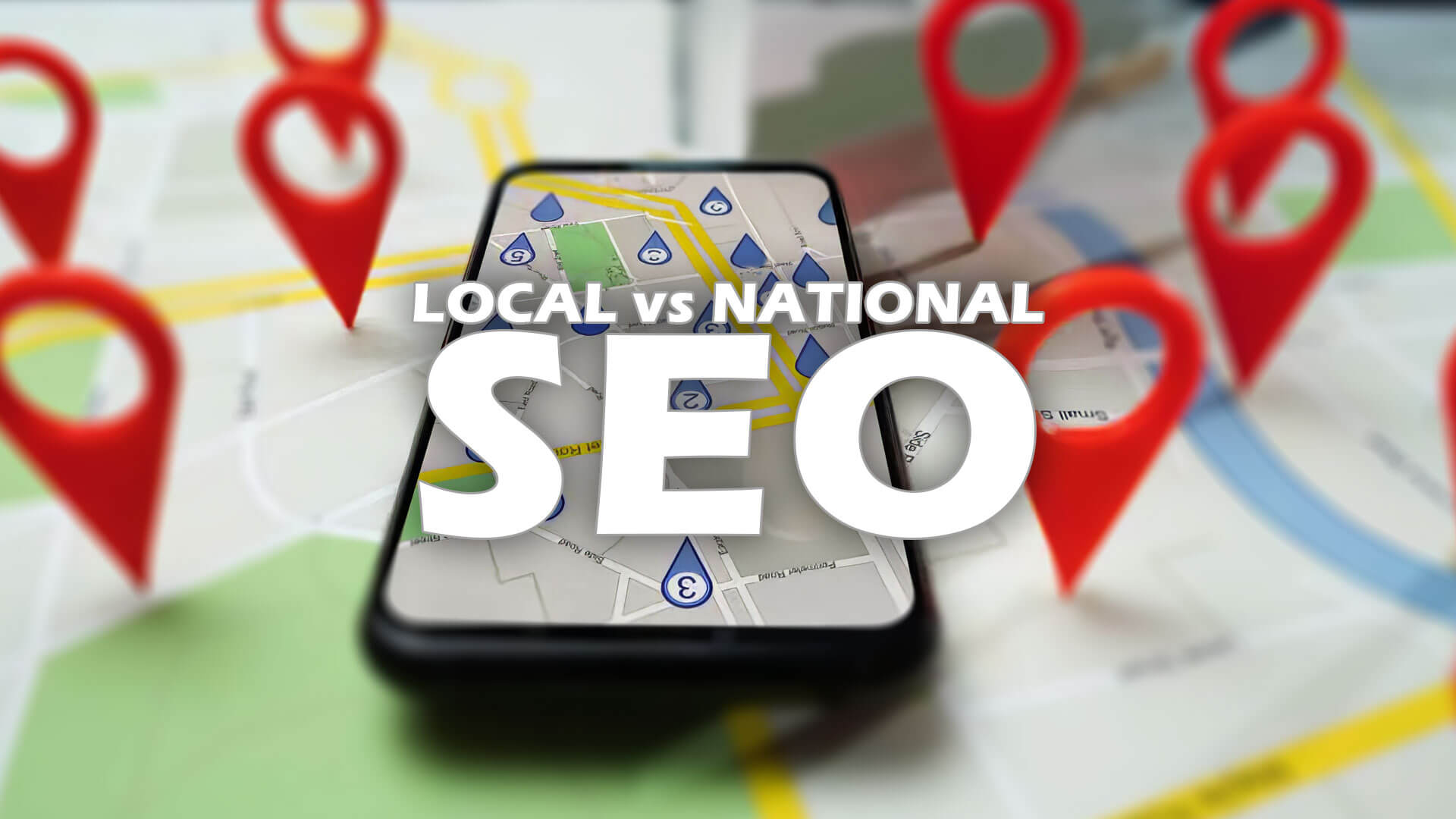
This guide will walk you through the details of the local vs national SEO conversation and explore hybrid strategies that could benefit your business.
Let’s get started, then!
Want to receive updates? Sign up to our newsletter
Each time a new blog is posted, you’ll receive a notification, it’s really that simple.
Case Studies: Successful Local And National SEO Campaigns
This section will examine two case studies of businesses that have succeeded by combining local and national SEO.
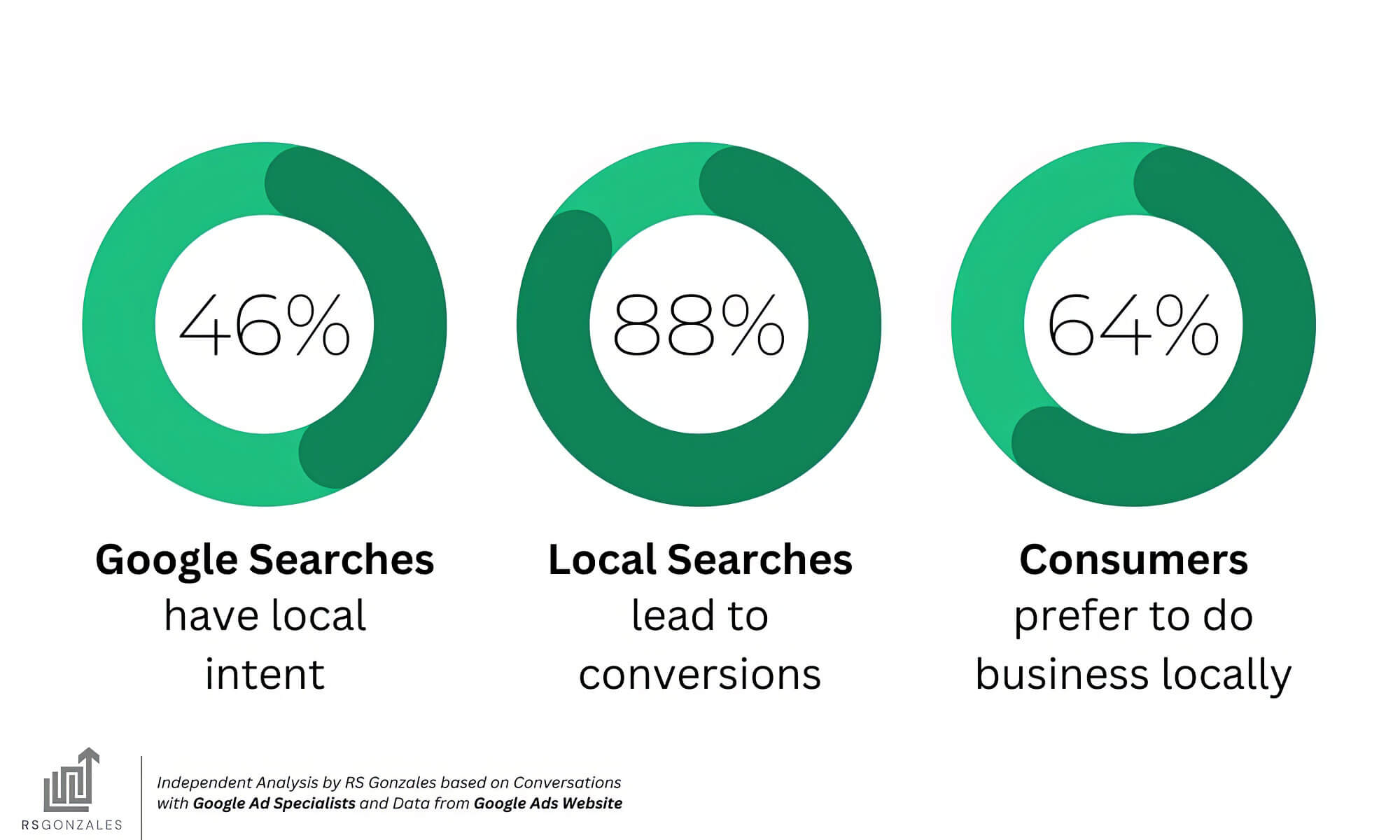
1. HomeAdvisor Case Study
HomeAdvisor is a US business that operates an online marketplace that connects homeowners with home service experts. The company’s national SEO campaign aimed to improve national search visibility, boost organic traffic to its website, and enhance leads and conversions.
HomeAdvisor made this happen with a national SEO strategy centred on high-volume, broad-search keywords relevant to home services. They created top-notch content like blogs, guides, and expert opinion pieces. They also focused on improving technical SEO, speeding up their site, and enhancing mobile usability.
As a result of this campaign, the business achieved improved rankings for competitive national keywords and boosted organic traffic by 60% within a year. The company also witnessed remarkable growth in terms of conversions and lead generation.
We can learn several lessons and tactics from this, including that high-quality, authoritative content helped HomeAdvisor distinguish itself from the competition. Technical SEO also played a significant role in site optimisation, which improved user experience. Finally, focusing on broader-search, high-volume keywords helped reach a larger audience.
2. Starbucks Case Study
Starbucks needs no introduction. The global coffee chain wanted to improve its local and national visibility to attract new patrons and retain its existing customer base. To achieve this, Starbucks adopted a hybrid SEO approach.
For local SEO, the business focused on optimising its Google Business Profile, creating localised content, and encouraging positive local reviews. Their national SEO focused on relevant and high-quality content creation, on-page and technical optimisation for a smoother customer experience and authoritative link building.
By adequately executing these strategies, Starbucks increased both local visibility and national traffic. They also achieved a more substantial brand presence across multiple locations, leading to higher customer footfall and engagement.
The above case study demonstrates that combining localised engagement and national reach can provide a strong presence on both fronts, enhancing brand recognition and increasing customer acquisition.
What is Local SEO?
Now that we’ve seen how local and national SEO can boost business, let’s examine local SEO more closely.
Local SEO helps boost a website’s ranking for local searches like “best carpenter near me” or “best pizza in Melbourne.” It’s quite effective—76% of local searches lead to a visit to a business within a day.
Local SEO aims to improve a business’s search visibility within a particular geographic region or specified business area. It might involve optimising Google Business Profiles, building local links, creating region-specific content, and managing online reviews.
Local SEO is key for brick-and-mortar businesses or those in specific areas. It drives targeted traffic, boosts visibility, and enhances customer interaction. When done right, local SEO can give your business a competitive edge.
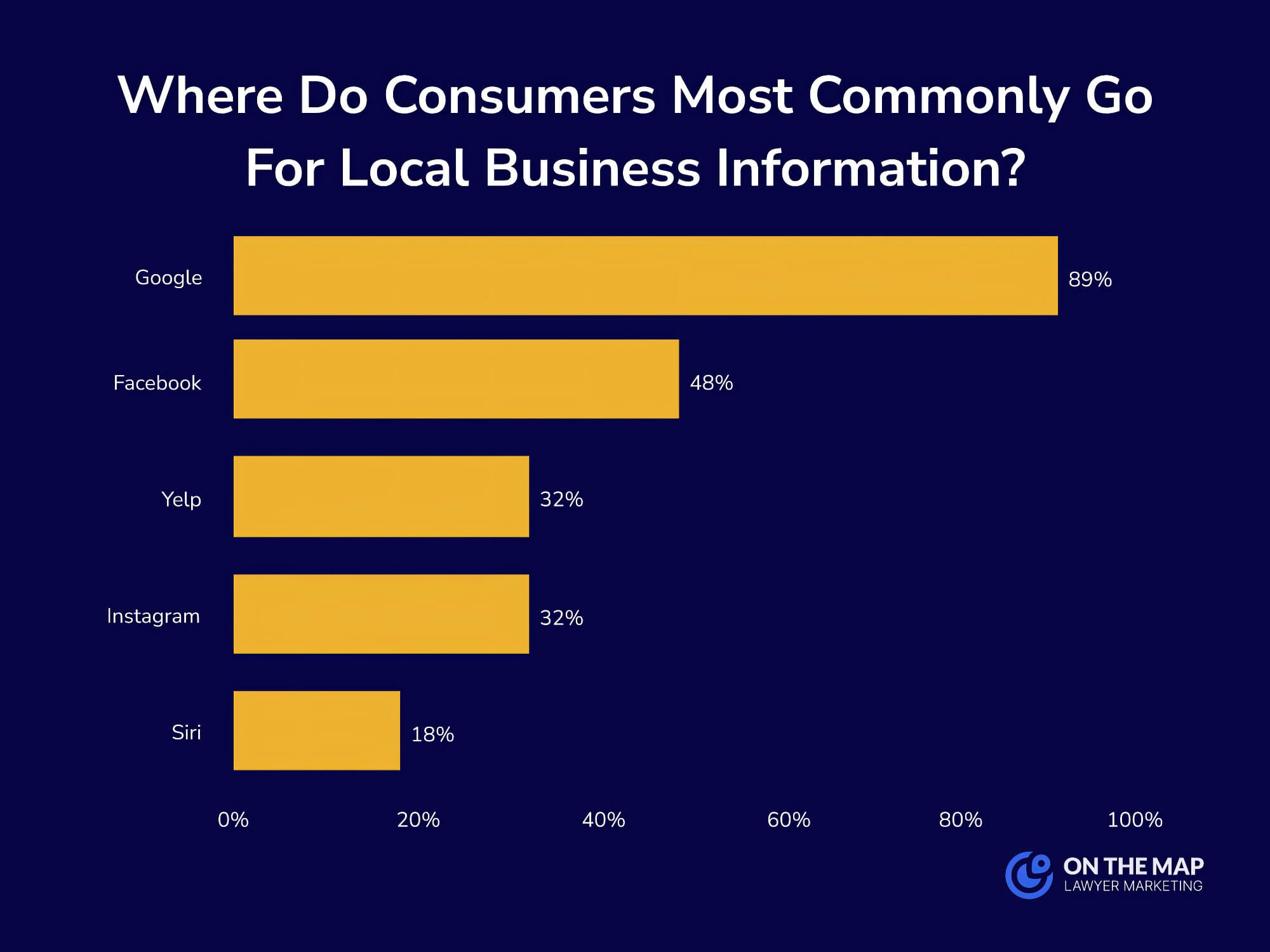
Key Components of Local SEO
Local SEO comprises multiple aspects, which, when combined, help your local business achieve a firm footing in the local market. The following are some of the critical components of local SEO and their importance:
1. Google Business Profile Optimisation
A well-optimised Google Business Profile is crucial for improving Google rankings. It also improves local search results and visibility and helps people find your business on Google Maps. Google Business Profile optimisation involves completing your profile with up-to-date and correct information, high-quality photos and videos, and easy-to-find contact information.
2. NAP Consistency
NAP (Name, Address, Phone Number) information ensures customers can contact you at the right time. Ensuring that your NAP information is consistent and correct across all online touchpoints is vital for improving customer trust and credibility.
3. Online Review Management
Proactively managing online reviews is vital for local SEO, as reviews influence local rankings and also help build customer trust. Both positive and negative reviews play a role in this. While positive reviews promote products/services and boost customer confidence, negative review handling helps show the customers that your business cares for them.
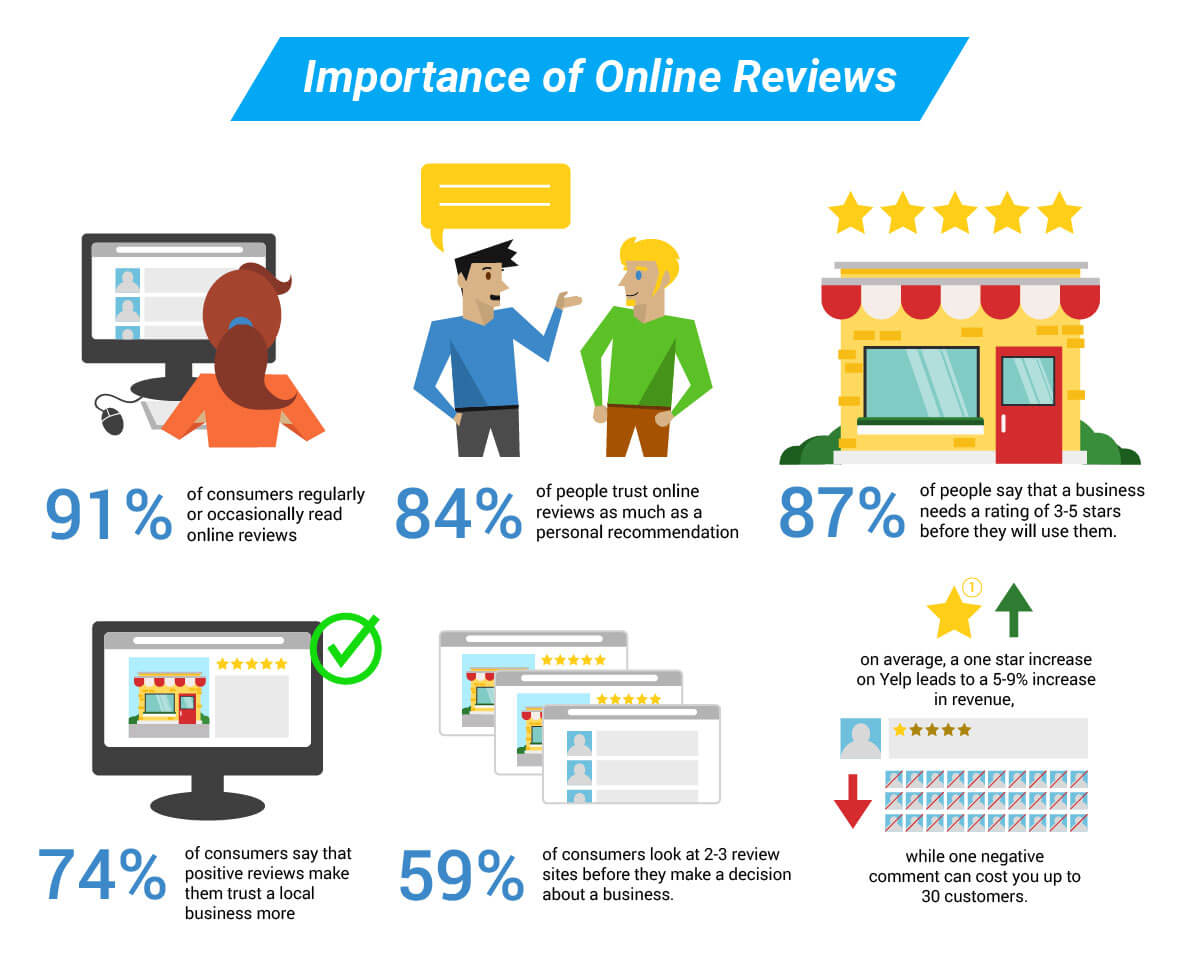
4. Localised Content And Dedicated Landing Pages
Localised content distributed through dedicated landing pages helps attract customers with high intent of converting. Through localised blog posts, news, and dedicated landing pages for local events, your business can provide relevant content to the local population and build trust.
5. Local Backlinks and Citations
Local citation building is yet another part of local SEO and helps validate businesses in their location. Through citations on local directories, online review platforms and backlinks from local websites, your business can improve its local presence and online ranking on SERPs.
6. Mobile Search Optimisation
In today’s day and age, almost everyone searches through mobile, which is true for local search also. So, optimising your online resources for proper mobile viewing is essential to providing a smooth user experience, as this reflects the standard of your brand.
By focusing efforts on these critical components, your business stands to create a well-rounded local SEO strategy that improves local search presence and drives more significant traffic to your website and brick-and-mortar stores.
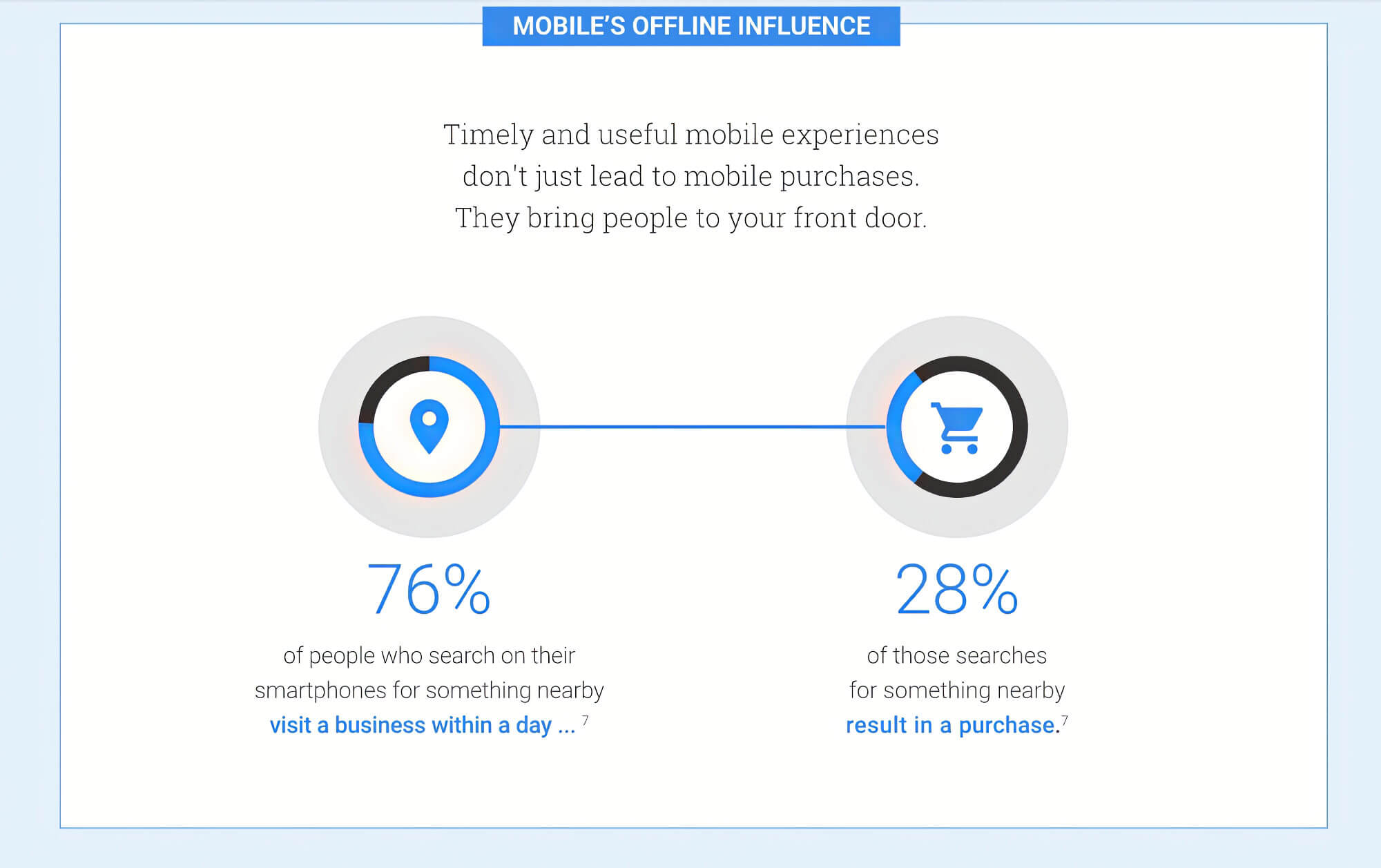
Benefits of Local SEO Strategies
Some of the most prominent benefits of local SEO are as follows:
- Improved local search visibility
- A greater number of qualified local leads
- Improved trust and credibility
- Gaining a competitive edge
- Improved foot traffic
These are just some of the benefits that your business can garner. This is by no means an exhaustive list. The benefits of local SEO efforts can help solidify your search presence and help you get a long-standing position on search engines.
What is National SEO?
As the name suggests, national SEO is that branch of search engine optimisation that optimises a website’s search ranking across an entire country. Unlike local SEO, national SEO doesn’t target any specific locality but the whole nation and has a broader reach. National SEO is vital for businesses that have a nationwide presence.
To ensure national visibility, businesses must conduct extensive keyword research to target high-volume terms used nationally. This should be followed by creating high-quality content, acquiring backlinks, and performing technical SEO. National SEO also involves optimising site structure to provide a unified brand experience across all regions.
Key Components of National SEO
In this section, we’ll look at the key components of national SEO and how they boost website visibility across the country.
1. Keyword Research
Well-organised keyword research is the basis of an excellent national SEO strategy. Detailed keyword research helps narrow down high-volume, relevant keywords that can be targeted nationally. This includes search trend analysis, competition analysis, and traffic analysis nationwide.
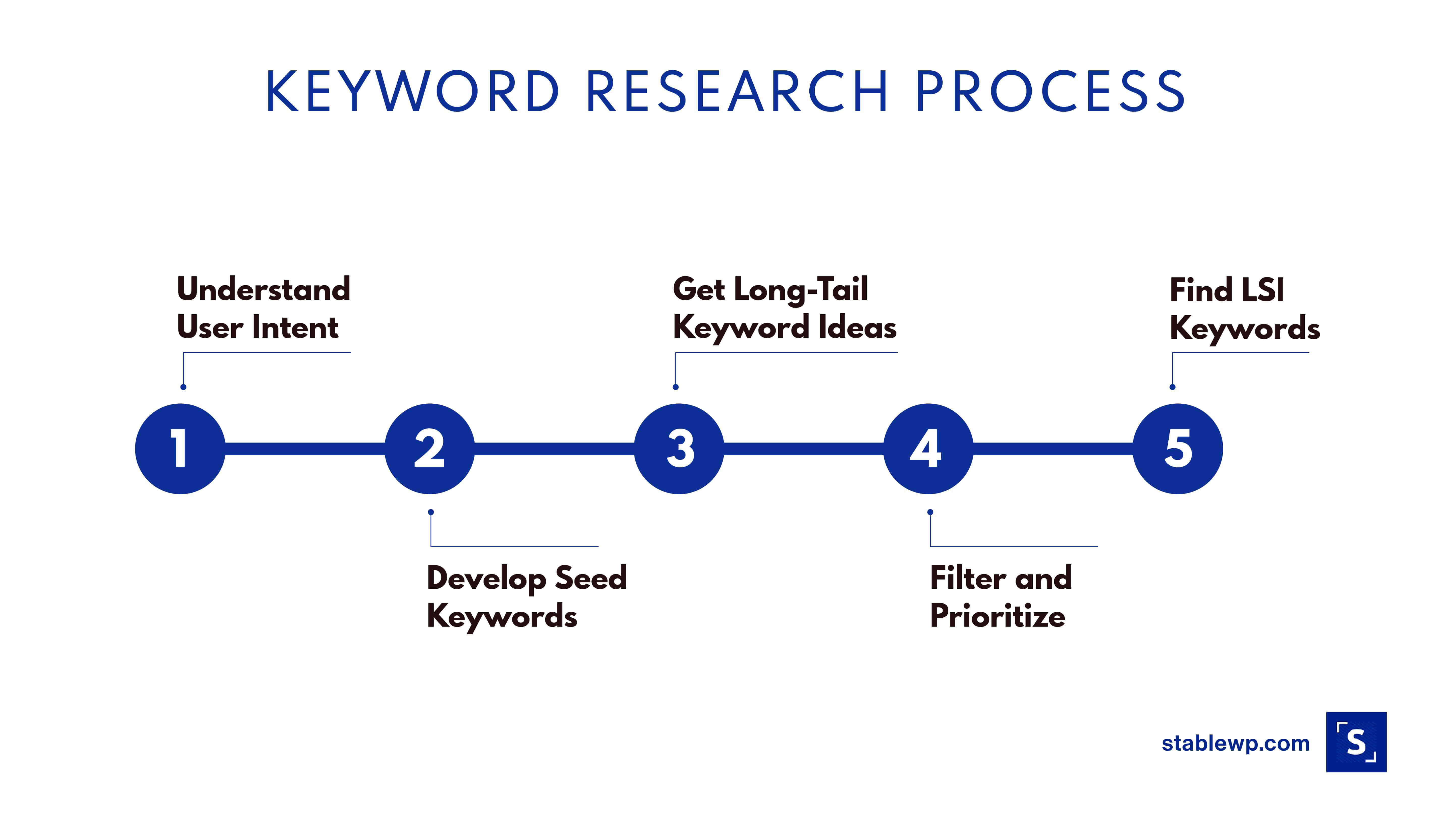
2. Content Creation
After keyword research reveals the target search terms, the next step is to create high-quality, relevant content around the keywords that will appeal to a broad audience. Doing this establishes your business as an authority in your industry and a source of valid information. Such content can be written, video, and even podcasts, whatever is relevant to your target audience.
3. Backlink Acquisition
Acquiring high-quality backlinks from national sources is another vital component of national SEO. A handful of high-authority backlinks can improve your site’s credibility and domain authority, leading to better results on national SERPs.
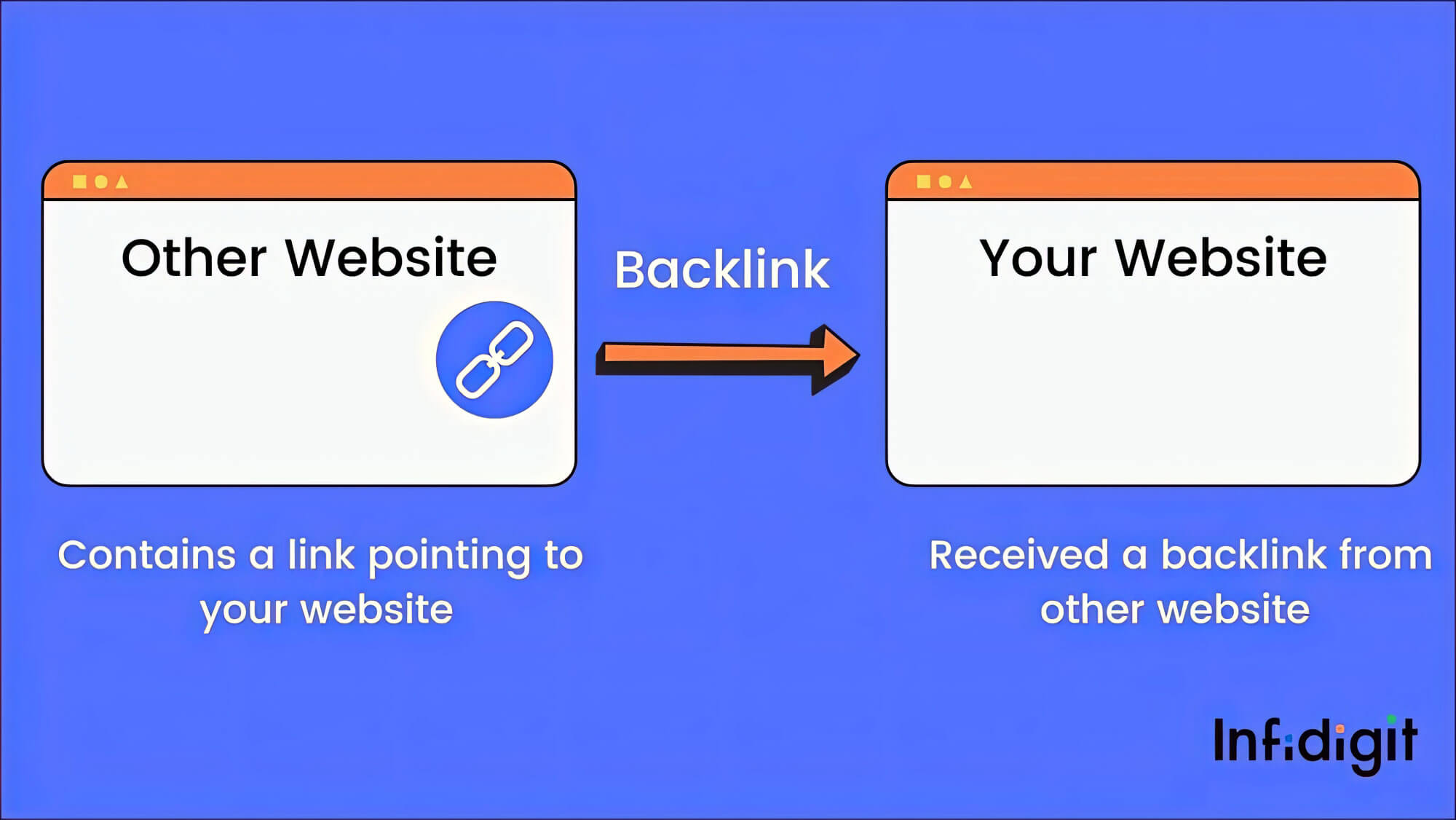
4. Technical SEO
Along with the above, technical SEO factors such as site speed, mobile-friendliness, user experience, and navigation also play a vital role. It is essential to get the right balance across all these factors to appeal to the national audience.
5. Paid And Social Media Advertising
Finally, paid search and social advertising can complement organic national SEO and boost visibility. Proper utilisation of paid search and social can help enhance reach, target particular demographics, and boost website traffic.
By effectively stitching together all these components, your business can ensure improved online presence and traffic nationwide.
Benefits of National SEO
Following are some of the benefits of national SEO:
- Country-wide brand awareness and visibility
- Potential to reach a large volume of leads from across the country
- Greater search traffic and potential customers
- Gaining an edge over local competitors
- Establishing your business as a leader in the industry
Overall, national SEO can help your business gain a strong foothold across multiple locations in the country.
Key Differences Between Local SEO vs National SEO
Local and national SEO differ in their target audiences and strategies. While local SEO focuses on potential and existing customers from a specific location through local keyword-based content, national SEO aims to reach a broader, country-wide audience. National SEO achieves this by using broad-reach keywords and creating content that can attract a large audience.
Local SEO also focuses more on local directories and regional backlink building, while national SEO targets backlinks and mentions from national reputation sources. The performance metrics used to measure each type of campaign also differ.
The following table illustrates the differences:
| Target Audience | Local or regional customers | Nationwide or global audience |
| Geographic Focus | Emphasises specific cities, regions, or neighbourhoods | Focuses on a broad, national or global reach |
| Keyword Research & Optimisation | Local keywords with geographical modifiers (e.g., “plumber in Adelaide”) | Broad keywords targeting a wider audience (e.g., “plumber”) |
| Content Strategy & Creation | Focuses on local topics, events, and community-specific content | Covers general topics relevant to a national or international audience |
| Link Building Tactics | Acquiring local backlinks from local businesses, directories, and community sites | Earning backlinks from high-authority, nationwide, or global sites |
| Performance Measurement Metrics | Local search rankings, local traffic, and foot traffic to physical locations | Overall search rankings, national traffic, and engagement metrics |
In the following sections, we shall discuss these differences in detail.
Target Audience and Geographic Scope
As mentioned, local SEO targets people within a particular geographic location and uses specific tactics to attract customers. In contrast, national SEO focuses on a broader audience spread across a country or sometimes even the entire globe. This requires a broader approach with more inclusive keyword research, mass-appealing content and location-independent promotion.
Keyword Research and Targeting
Keyword research in local SEO usually involves geographic modifiers, such as location names, postcodes, or “near me” queries. This confines the search terms to places being targeted. Suitable tools for local keyword research are Google Keyword Planner and Moz Local.
On the other hand, National SEO uses high-volume, broad keywords with no geographic connotations. Keyword research, in this case, targets high-volume, competitive keywords that can include the largest audience possible. Suitable tools for national keyword research are SEMrush and Ahrefs, which help find and analyse high-volume keywords.
On-Page Optimisation Techniques
On-page optimisation differs significantly between local and national SEO. For local SEO, it’s crucial to incorporate local keywords and NAP details in content, meta tags, and title tags. This approach bolsters local relevance and search rankings since 42% of users click on results in Google’s local 3-pack.

In contrast, national SEO optimises more for a broader audience through in-depth content, high-quality internal linking structures and multimedia usage to improve authority and engagement.
Off-Page SEO and Link Building
Off-page SEO and link-building efforts for local SEO focus more on building local citations and getting backlinks from location-specific websites. This includes listing on local directories, links from local news websites, online reviews and an optimised Google Business profile.
National SEO, on the other hand, focuses on securing links from nationally or even internationally relevant and authoritative websites. This can include strategies such as building broken links, guest posting, and influencer marketing.
From a broad perspective, local and national SEO apply similar tactics in this department, with different scopes.
Performance Measurement and Tracking
Next, let’s discuss tracking and measuring performance. For local SEO performance measurement, we focus on local metrics such as local search visibility, local ranks, and local engagement metrics such as Google Business Profile engagement.
For national SEO, broader KPIs are used, such as national search visibility, high-volume keyword rankings, organic traffic analysis, and national conversion tracking. Such broad metrics provide detailed insights into how the campaign is performing on a national scale.
Remember that setting proper KPIs and proactively measuring them is vital, regardless of scope. This ensures that your campaign is performing well in the desired direction.
When to Prioritise Local SEO
Since local SEO targets a particular location and tries to attract local customers, it is best for businesses that significantly rely on foot traffic and for product/service providers that operate from a brick-and-mortar location within a particular area. Some common scenarios for investing in local SEO are given below.
Scenarios Favoring Local SEO Strategy
- Brick-and-mortar businesses such as restaurants, retail stores and coffee shops
- Local service providers such as plumbers and electricians
- Local healthcare practitioners such as dentists, doctors, pharmacists
- Regional professionals such as lawyers and real estate agents
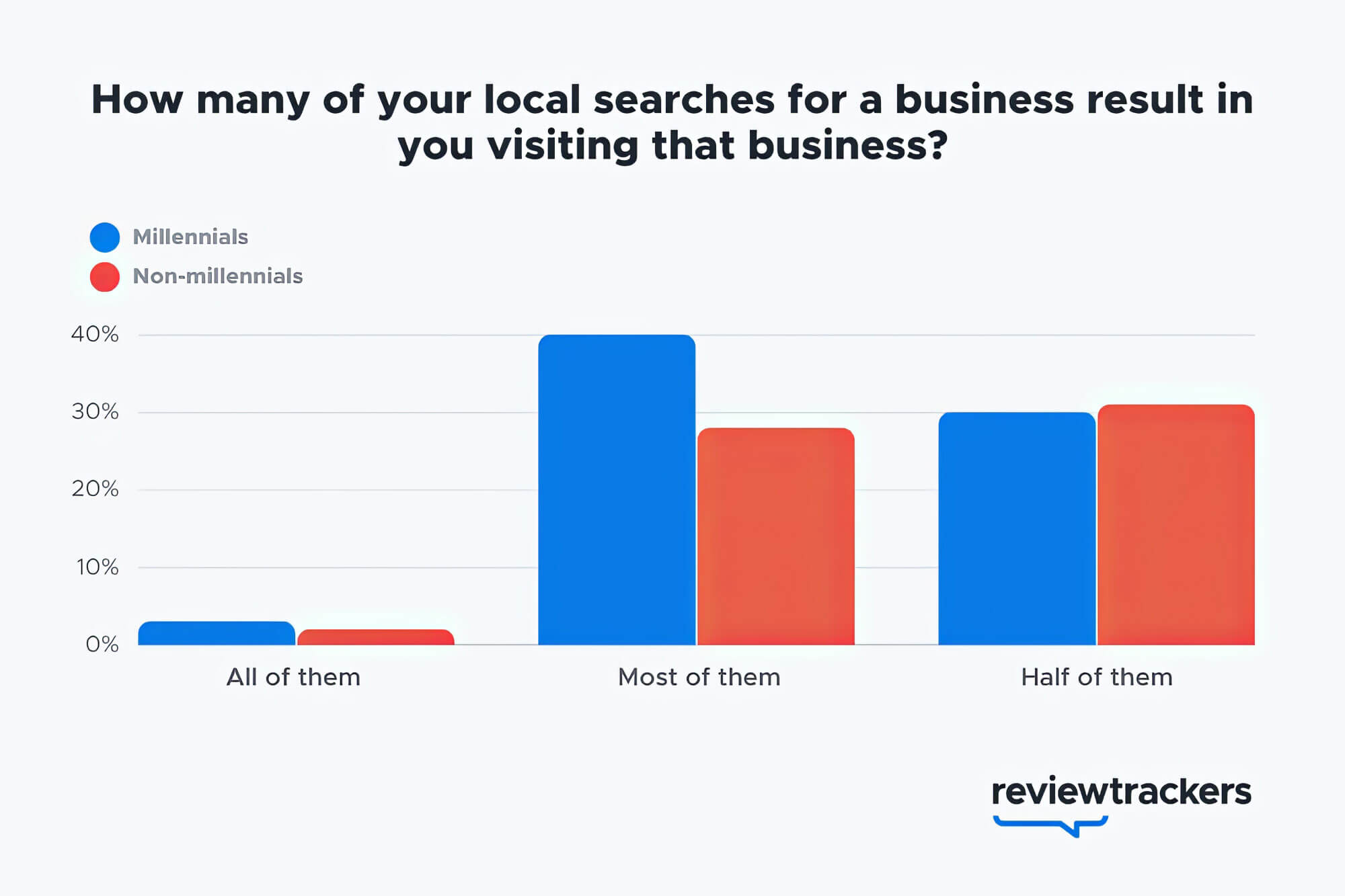
When to Prioritise National SEO
If your business operates nationally and you want to reach customers across the country, national SEO is your go-to strategy. For businesses aiming to be industry leaders, like eCommerce platforms, targeting a wide audience is key to building trust.
The following are some favourable scenarios for investing in a national SEO strategy.
Scenarios Favoring National SEO Strategy
- National eCommerce businesses with a country-wide customer base
- SaaS businesses that provide services across the nation
- Service providers such as digital agencies or consultancy firms
- Franchise businesses such as coffee and fast-food chains
- Large companies looking to establish thought leadership
Combining Local and National SEO Strategies
Businesses with both local and national (or global) operations should blend local and national SEO strategies for the best results. A hybrid approach boosts visibility, enhances broad reach, and serves both local and national customers effectively.
Developing a Hybrid SEO Approach
To settle the debate between local SEO and national SEO, a hybrid approach that includes the best elements of both is essential. This way, businesses can serve both local customers and national patrons.
The following are some of the strategies that your business can use to achieve this:
- Create separate local and national landing pages
- Optimise the website and content for both local and national SEO
- Use a balanced combination of local and national backlinks
- Use schema markup to provide search engines with structured data
- Track and measure performance on national and local levels
Combining these strategies allows your business to get the best of both worlds.
Future Trends in Local vs National SEO
SEO is constantly in flux as new technologies are introduced, whether local, national, or global.
Trends such as voice search, visual search, and AI will play a significant role in shaping SEO trends for the future. While machine learning will improve search algorithms, an increased focus on E-E-A-T will ensure more credible and relevant content.
Businesses must always stay updated to leverage the latest trends to their advantage.
Choosing Between Local SEO and National SEO to Boost Your Business
When deciding between local SEO and national SEO, your business goals, target audience, and online presence must be considered.
Local SEO is best suited for businesses that rely on foot traffic and serve customers within a specific geographic area. On the other hand, national SEO is ideal for businesses with a nationwide presence aiming to reach a broader audience.
However, the most effective solution for businesses operating locally and nationally is a hybrid approach combining the best elements of national and local SEO.
As search engines continue to evolve, staying up-to-date with the latest trends in SEO is crucial for maintaining a competitive edge. Incorporating voice search optimisation and visual search capabilities and adhering to E-E-A-T (Experience, Expertise, Authoritativeness, and Trustworthiness) guidelines can help future-proof your SEO efforts.
Ultimately, whether you focus on local SEO, national SEO, or a combination of both, developing a comprehensive digital marketing strategy that aligns with your business objectives is key to success.
Investing in the right SEO tactics and consistently creating valuable content that resonates with your target audience can improve your online visibility, drive more qualified traffic, and grow your business in today’s competitive digital landscape.
Ready to take your SEO to the next level? Partner with sitecentre® - the leading digital marketing agency specialising in local and national SEO strategies. Our expert team will work with you to develop a tailored SEO plan that boosts your online presence and drives measurable results.
Contact us today to learn more about our proven local SEO and national SEO services.



